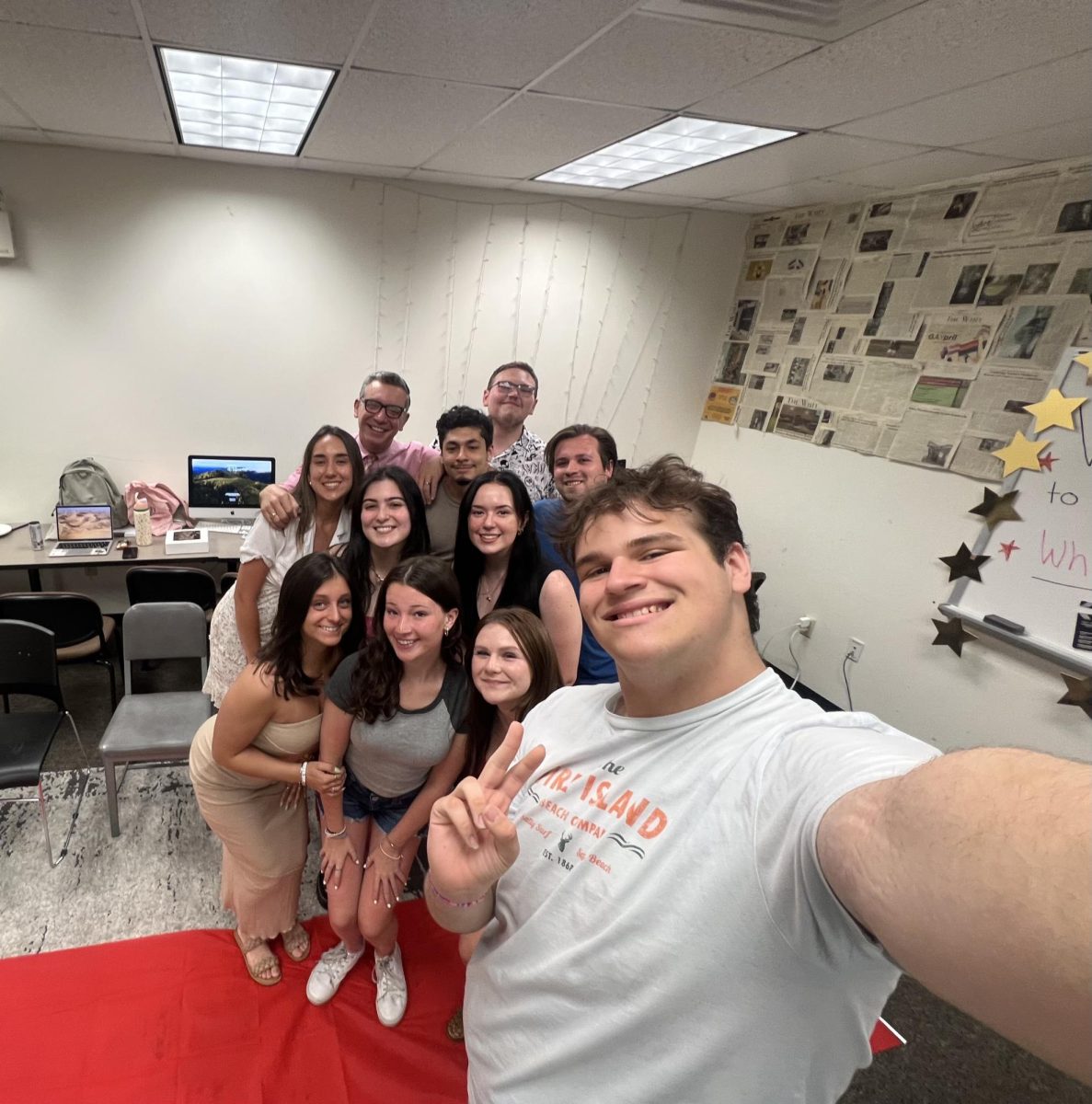Everyone has an opinion. And in the age of social media, everyone has a platform to voice that opinion and feel entitled to that action. In the age of constant communication and unlimited talk and text, everyone has forgotten how to shut up.
Conversation is encouraged in every space on campus and people often voice their opinions in a calm manner in their classes. There is absolutely nothing wrong with conducting thought-provoking and polite conversations on various relevant topics. Still, there is a problem when students begin to monopolize these conversations with their own opinions.
Of the roughly 19,000 students that attend Rowan University, College Factual reports that about 70% of students attending Rowan are white, with 11.5% being Hispanic, 9.8% of students being Black and the remainder of students being Asian, multi-ethnic, or identifying with a different ethnicity/race. This means that, within the average Rowan class size, 14 students are White and six students are a part of a racial or ethnic minority. Often, students of color are still the only student within their racial or cultural group in class.
In terms of gender, the Williams Institute of the University of California, Los Angeles, estimates that 0.44% of people in New Jersey identify as transgender. This would be about 84 Rowan University students overall and 0.088 of a student in a 20-person class. Other members of the LGBT+ community amount to roughly 4% of the New Jersey population, about 0.8 of a student per 20-person class and 760 students overall.
With so many societal issues revolving around people of color, sexuality and gender, your first thought when explaining your opinion shouldn’t be about how to articulate yourself. It should be to reflect and recognize if someone else’s opinion in the room is more important than yours.
If you identify as a man and there is a discussion on gender inequality, what makes your opinion so critical that you should voice it over the women that do experience this issue? If there is a discussion on AAPI violence, is your more valued than an AAPI person’s in that moment? The same can be said for discussions on wealth inequality, anti-trans bills, women in sports, the Black Lives Matter movement and media representation. Everyone’s opinion is valued in all impassioned discussions, but we also need to be considerate of those that can provide a more nuanced opinion within these talks due to their personal experiences.
It’s not that your opinion doesn’t matter if you do not personally experience an issue being discussed. It’s that students who enter the classroom without this level of consideration accidentally overpower the voices of student minorities that remain unheard or unrepresented.
In a 2012 study from Mahajoy Adia Laufer at Smith Colleger, Laufer studied the silence of Black students within the classroom at predominately white institutions (PWIs) where students of color make up less than 35% of an institution’s demographics. Laufer came to find that students often remained silent within the classroom because of their minority status and because of their belief that their opinion will not be valued.
“Nearly all students perceived that being in the numeric minority in race, gender, or social class were reasons they seldom spoke out in class,” Laufer wrote. “Participants felt uncomfortable drawing attention to themselves, tokenized, and afraid to ‘go against’ the opinion of the majority.”
It is these concerns recognized within students in Laufer’s study that are often echoed by other minority groups in the classroom. Students who belong to a part of these groups often remain silent, allowing their classmates a part of the majority to steer the conversation and overlook the opinions of minorities entirely.
Professors also hold a certain level of responsibility within these discussions. They have the ability to guide these conversations so students stay on-topic and be conscious of who is speaking within the discussion. When calling on different students to speak in class, professors need to prioritize those with nuanced and personal opinions in order to facilitate well-rounded discussions that are inclusive to all members of the classroom.
When it comes time to have a discussion in your next class, take a moment to evaluate your opinion and position in relation to the topic. Could your opinion provide the same intricacy as that of your peers? Are you monopolizing a conversation? Is there someone near you more qualified to provide the same information?
It’s not that you shouldn’t voice your opinion, it’s that everyone needs to learn to sit down and stop talking. Let someone else have the floor.
For comments/questions about this story, tweet @TheWhitOnline or email [email protected].

























































































































































!["Working with [Dr. Lynch] is always a learning experience for me. She is a treasure,” said Thomas. - Staff Writer / Kacie Scibilia](https://thewhitonline.com/wp-content/uploads/2025/04/choir-1-1200x694.jpg)












































